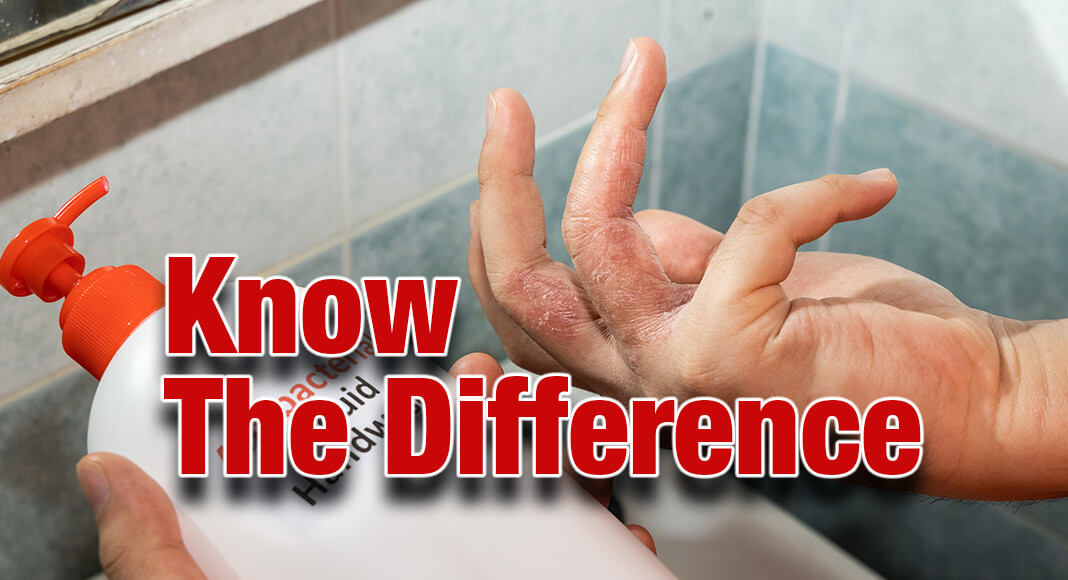
Mega Doctor News
By American Academy of Dermatology
Newswise — ROSEMONT, Ill. — Hand eczema is one of the most common forms of eczema, causing dry, itchy, and irritated skin affecting the whole hand, including the fingers. This skin condition can negatively impact a person’s quality of life because we use our hands often. In recognition of Eczema Awareness Month in October, board-certified dermatologists share information about the causes of hand eczema and how it can be treated to keep the condition from worsening.
“If your hands are extremely dry and painful, and using moisturizer throughout the day is not helping to relieve them, you may have hand eczema,” said Dawn Davis, MD, FAAD, a pediatric and adult board-certified dermatologist at Mayo Clinic Rochester. “Without the proper treatment and preventive measures, hand eczema may worsen.”
Unlike dry skin, hand eczema can cause the following:
- Patches of red, dark brown, purple, or gray, irritated skin
- Scaly and inflamed skin that may itch
- Burning sensation
- Itchy blisters
- Deep, painful cracks
- Bleeding or weeping skin
- Crusts, pus, and pain
“Hand eczema can flare from a variety of triggers,” said Dr. Davis. “Some patients will see increased irritation in cooler, dry temperatures, while for others the condition may worsen during warmer months due to sweating. A trigger or flare for one patient could be different than flares or triggers for other patients.”
Anything that irritates the skin — even something as harmless as not properly drying wet hands — can cause hand eczema. Working with chemicals like solvents, detergents, or cement also increases the risk.
Hand eczema can also be caused by an allergic reaction, such as being allergic to latex or certain metals in jewelry. Adults who had atopic dermatitis, which is often called eczema, as a child have a higher risk of developing hand eczema.
“At the core of all eczema treatments is a sensitive skin care routine,” Dr. Davis said. “It’s important to note that patients with hand eczema may also have foot eczema. They’re parts of the body that we use often and as such are often exposed to harm from our environment and the chemicals and objects we use in our daily lives. They both have thick skin along the palms and soles, which protect the skin, but can also be difficult to hydrate.”
Dr. Davis recommends a variety of ways to prevent hand eczema flare-ups, such as using a gentle hand cleanser, not washing too frequently, and making sure to rinse off any excess cleanser, especially between the fingers where it can sometimes accumulate.
She also encourages patients to pat their hands dry instead of air drying, using paper towels when available to decrease the risk of spreading infections.
To avoid irritating your skin, use a fragrance-free cream or ointment instead of a lotion.
People who suffer from hand eczema can treat it at home by gently bathing with hypoallergenic cleanser, washing their hands when exposed to dirt and dander, hydrating with moisturizer, and avoiding exposure to irritants and allergens. Other at-home treatment options include putting petroleum jelly on the affected area of the hands before bed or applying a thick moisturizer often throughout the day. Wearing gloves when encountering potential irritants will also reduce the likelihood of flare-ups.
If that doesn’t work, Dr. Davis suggests a vinegar soak, which is also know as an acetic acid dressing solution, a non-toxic, efficient topical agent used to prevent infection and kill bacteria. It involves diluting white vinegar and soaking the hands.
“After making the solution, the patient soaks a washcloth in the mixture, wrings it out, rolls the washcloth around their hand like a burrito, and then puts a white tube sock over their hand for several hours or before going to bed,” she said.
When at-home treatment options fail, patients should consult a board-certified dermatologist, who can provide treatment options such as topical steroids of an appropriate strength or topical calcineurin inhibitors, which reduce patients’ inflammation and itching, as well as decrease their flare-ups.
“It is important that people seek treatment for hand eczema so their skin doesn’t get infected, which can lead to cellulitis, a common, potentially serious bacterial skin infection” said Dr. Davis. “Patients can also develop an allergy to an irritant, and continued exposure to that allergen can increase how allergic you are to it. If you suspect that you have hand eczema and at-home treatments fail to bring you relief, make an appointment to see a board-certified dermatologist.”
For more information about hand eczema, visit the Academy’s website.
To find a board-certified dermatologist in your area, visit aad.org/findaderm.
More information
Dry, Scaly, and Painful Hands Could Be Hand Eczema
About the AAD
Headquartered in Rosemont, Ill., the American Academy of Dermatology, founded in 1938, is the largest, most influential, and most representative of all dermatologic associations. With a membership of more than 20,000 physicians worldwide, the AAD is committed to: advancing the diagnosis and medical, surgical and cosmetic treatment of the skin, hair and nails; advocating high standards in clinical practice, education, and research in dermatology; and supporting and enhancing patient care for a lifetime of healthier skin, hair and nails. For more information, contact the AAD at (888) 462-DERM (3376) or aad.org. Follow the AAD on Facebook (American Academy of Dermatology), Twitter (@AADskin), Instagram (@AADskin1), or YouTube (AcademyofDermatology).
Editor’s note: The AAD does not promote or endorse any products or services. This content is intended as editorial content and should not be embedded with any paid, sponsored or advertorial content as it could be perceived as an AAD endorsement.









